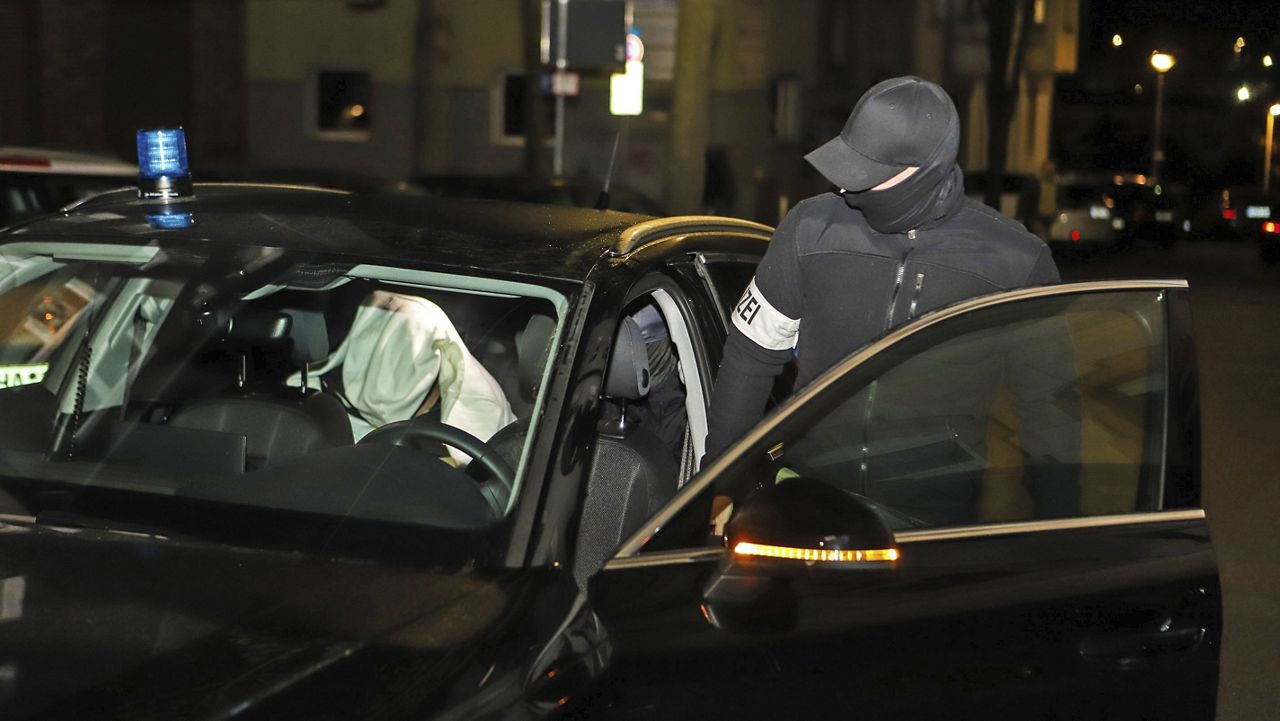Police across Europe on Wednesday arrested dozens of people, raided homes and seized an estimated 25 million euros in assets in a massive joint effort to crack down on Italy's 'ndrangheta organized crime syndicate, one of the world's most powerful, extensive and wealthy drug trafficking groups.
What You Need To Know
- Police across Europe have arrested dozens of people, raided homes and seized 25 million euros in assets in a massive joint effort to crack down on Italy's 'ndrangheta organized crime syndicate
- In Italy, carabinieri police backed by police helicopters served arrest warrants on 108 people across the peninsula accused among other things, of mafia association; possession, production, and trafficking of drugs and weapons; and money laundering
- The operation aimed to dismantle a network of contacts between the n'drangheta, one of the world's most powerful, extensive and wealthy drug traffickers
- Working with Colombian drug producers and paramilitary groups, the network moves tons of cocaine to Europe each year
In Italy, carabinieri police backed by police helicopters said arrest warrants were served on 108 people, who were accused, among other things, of mafia association; possession, production, and trafficking of drugs and weapons; and money laundering.
The operation, coordinated by European Union judicial cooperation agency Eurojust, aimed to dismantle a network of contacts linking the n'drangheta, Colombian drug producers, paramilitary groups and Europe-based operations that move tons of cocaine to and around Europe and Australia each year. Drug proceeds were then laundered through restaurants, ice cream shops and car washes.
One of the key figures in the network was a former powerful boss, Rocco Morabito, who was arrested in 2021 in Brazil after nearly 20 years as a fugitive. The investigation also confirmed the enduring strength of a handful of well-known 'ndrangheta clans that operate in the Calabrian town of San Luca.
The investigation uncovered how their networks used ports in Ecuador, Panama and Brazil to ship the Colombian drugs to northern European ports while also dealing in weapons. Money changed hands via a Chinese wire transfer service, according to Italian officials and a carabinieri press release.
In Germany, more than 1,000 officers searched dozens of homes, offices and stores in the states of Bavaria, North Rhine-Westphalia, Rhineland-Palatinate and Thuringia, prosecutors said in a joint statement. Over 30 suspects who had outstanding warrants were arrested.
In addition to Italy and Germany, arrest warrants were also served in Belgium, France, Portugal, Romania and Spain, while raids were also conducted in Slovenia.
Portugal's Judiciary Police said that they had arrested a 62-year-old Italian man on charges of criminal association, money laundering, and drug trafficking as part of the European operation, which was dubbed "Eureka." They also seized about half a million euros and various documents, among other confiscated items.
European authorities have been waging a campaign against the Calabria-based 'ndrangheta in recent years, as the group has eclipsed the Sicilian Mafia as the key mover of tens of billion euros in cocaine in recent decades moving from South America to Europe.
At a press conference in the Calabrian capital Reggio Calabria, officials estimated the operation had resulted in the seizure of 23 tons of cocaine over years of investigation, which deprived the 'ndrangheta of some 2.5 billion euros in drug revenue. In addition, they announced 25 million were seized in assets.
In Germany, the 'ndrangheta has been firmly established since the 1970s. It is considered the strongest of the Italian organized crime groups in the country, and is mainly focused on international narcotics trafficking, according to Germany's Federal Office of Criminal Investigation.
In Germany, the main focus of the operation was in North Rhine-Westphalia and Rhineland-Palatinate, with around 500 officers deployed in each state. In North Rhine-Westphalia, 51 houses, apartments, offices and business premises were searched and 15 suspects were arrested.
Among other things, the suspects are accused of money laundering, gang tax evasion, commercial gang fraud, and narcotics smuggling, a statement from the German state office of criminal investigation in North Rhine-Westphalia said.
In Rhineland-Palatinate, police searched 50 premises and arrested 10 suspects. The task forces in Rhineland-Palatinate were supported by special units of the federal government and other states as well as customs and the tax investigation department, German news agency dpa reported.
The state interior minister of Rhineland-Palatinate, Michael Ebling, called the raids an "effective blow" against organized crime.
"Today sends out a very clear signal: There is no place for organized crime in Europe and there is certainly no place for it here with us in Rhineland-Palatinate," he said, according to dpa.



